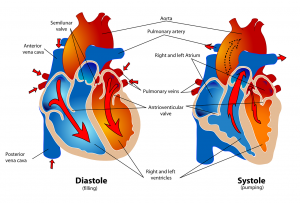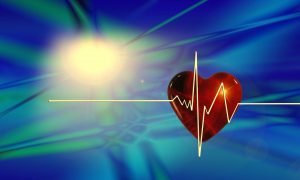If you remember your elementary science you know that muscle located in your left breast that is entrusted with your life, the heart. The day it stops doing its job is the day your journey on earth stops.
From the conception of a child, the heart is one of the first organs that shows face and begins its duties. It has a complex schedule, with no day-offs. While you sleep it is at work and when you awake it continues to work. It determines the quality and length of time you will stay on this earth. “Lum dum” it goes about its duties 24/7 pumping blood all over your body. The blood that carries nutrients, the air you breathe name it. It is a very strong dedicated muscle, to say the least. If you don’t take care of it, you will be an ungrateful piece of flesh moving this earth.

Why is having a healthy heart important?
The heart is the life of a human being just as an engine is for the car. The quality of life one lives is to a very big extent dependent on how healthy their heart is. A healthy heart is central to overall good health. A strong and healthy heart will efficiently pump blood to deliver oxygen and nutrients required all around the body for you to thrive.
Loving on your heart and taking great care of it will save you the burden of having to suffer cardiovascular diseases which can be fatal. This aside, keeping a healthy heart will ensure that you maintain cholesterol and blood pressure levels in healthy ranges. High blood pressure and cholesterol levels increase the risk of one suffering cardiovascular diseases like a heart attack and stroke. Are you wondering what this means? High blood pressure also called hypertension is a condition in which the force of the blood against the artery walls is too high. Then high amounts of cholesterol in the blood can limit blood flow which increases the risk of heart attacks.
It is therefore important to keep your heart healthy so that these are maintained.

Can heart health be prevented, improved, or reversed?
Heart health is influenced by two factors; non-modifiable risk factors (those that cannot be changed) and modifiable risk factors (those that you can change). The more risk factors you have, the greater your chance of developing cardiovascular disease therefore while looking to prevent, improve or reverse your heart health, it is important to focus on the modifiable risks because these you have control over. Let us look at what these risk factors look like.
Non-modifiable risk factors
- Genetics – Your family history is a big determinant when it comes to heart health. Research has it that the risk of you being susceptible to a cardiovascular disease increases if your parents, brothers, sisters, or children have the disease, especially if male relatives were less than age 55 when they were diagnosed, or female relatives were less than age 65 when diagnosed.
- Gender – the male gender has a greater risk compared to their female counterparts.
- Age – Heart health decreases with increasing age. Cardiovascular diseases are more likely to occur as one gets older.
- Menopause – After menopause, a woman’s risk of getting a cardiovascular disease increases
Modifiable risk factors
- Unhealthy body weight; the more you weigh the harder your heart must work to supply your body nutrients and oxygen. Research has it that being overweight contributes to the onset of diabetes and cardiovascular diseases. Excess weight also raises blood cholesterol, triglycerides, and blood pressure, all of which increase the risk of cardiovascular diseases.
- Response to stress; an individual’s response to stress greatly determines their heart health. Failure to manage stress well can place immeasurably pressure on the heart which increases the chance of getting cardiovascular diseases like high blood pressure.
- Uncontrolled smoking and drinking alcohol; smoking and drinking a lot of alcohol can lead to increased blood pressure, heart failure, and even stroke.
- Cholesterol and triglyceride levels; Excessive lipids (fatty substances including cholesterol and triglycerides), especially in the form of LDL (Low-Density Lipoprotein) cholesterol also known as the ‘bad’ fat, cause the build-up of fatty deposits within arteries, reduces or blocks the flow of blood and oxygen to the heart. HDL (High-Density Lipoprotein) cholesterol also known as the ‘good’ fat takes the LDL (bad) cholesterol away from the arteries and back to the liver where it can be passed out of the body. High levels of HDL protect against cardiovascular disease.
- Blood pressure; Blood pressure is the measurement of the pressure or force inside the arteries with each heartbeat. High blood pressure increases the workload of the heart and kidneys, increasing the risk of cardiovascular diseases like heart attack, heart failure, and stroke. High blood pressure is considered the biggest risk factor for stroke.
Next Wednesday we shall talk about what can be done to avert the risk of cardiovascular disease. The earlier we start taking care of our hearts, the better for you and me.
Share this article with a friend and let us celebrate heart month together. Everyone has a part to play.
Be sure the catch my other amazing articles in case you missed them like this one.

Message well received, thanks dear
This is so important, have to do more research on the heart
Please share when you do. Thnk you for reading